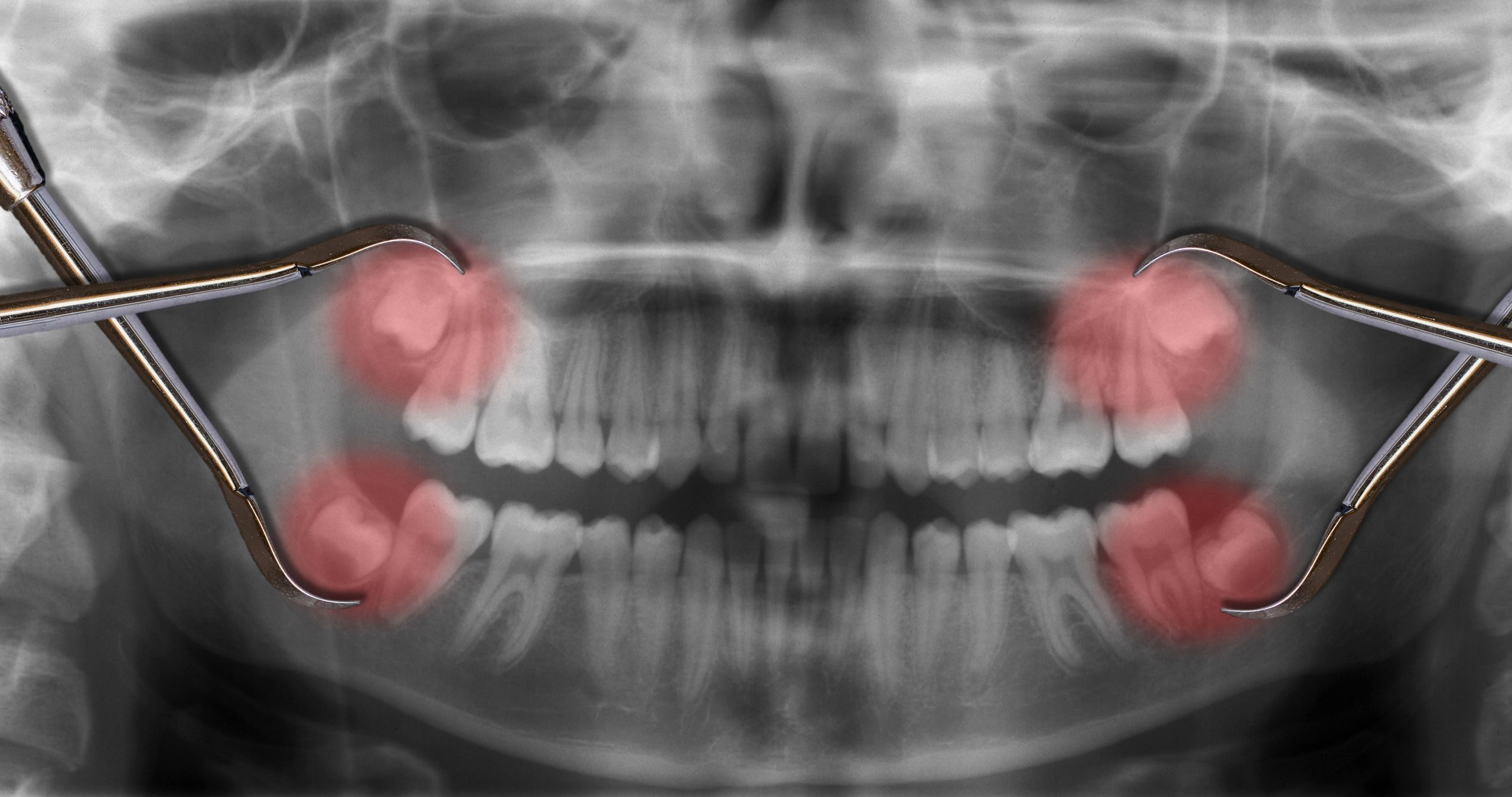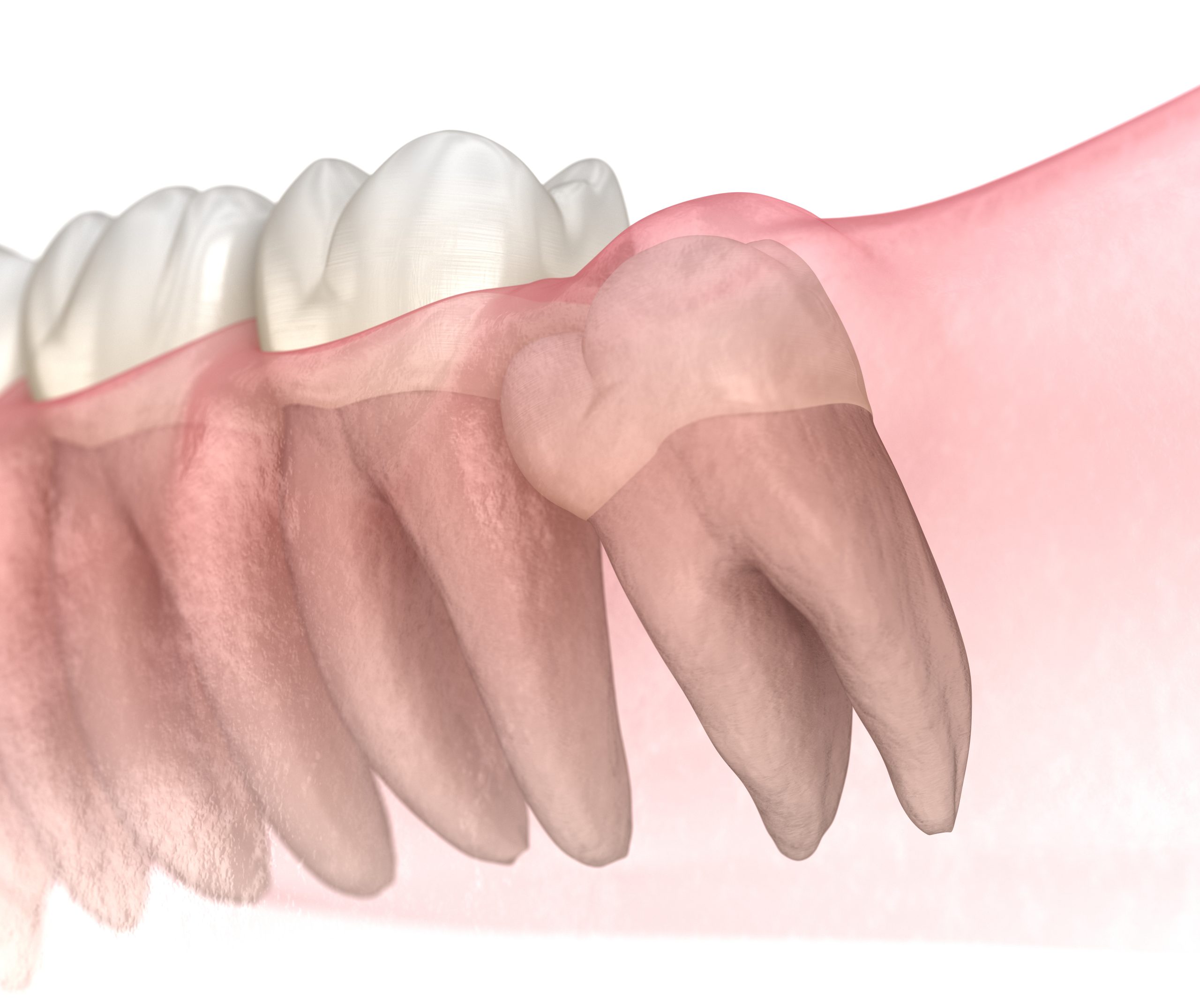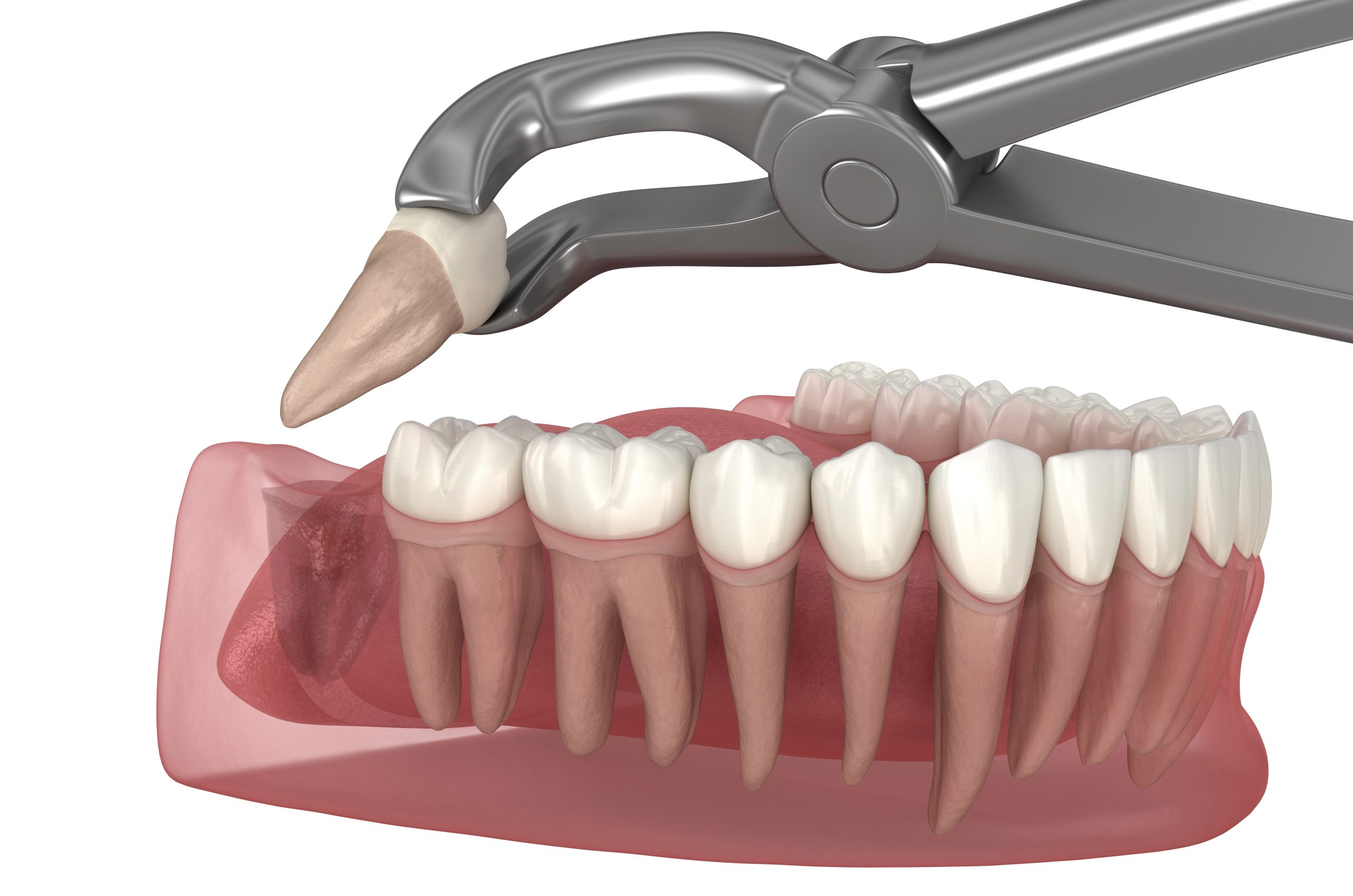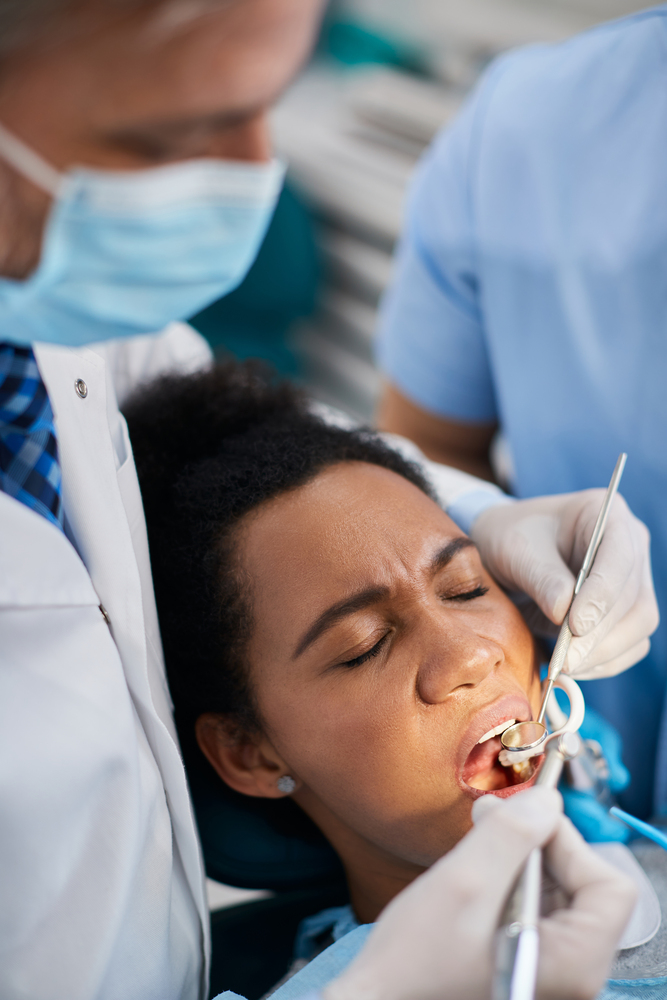Wisdom Teeth Removal in Thornhill
Overview
At our Thornhill dental clinic, we provide expert wisdom tooth extraction services for both simple and complex cases. Whether your wisdom teeth have fully erupted or are still impacted beneath the gums, our skilled dental team is here to create a safe, comfortable, and efficient removal process. We offer a variety of sedation options, including nitrous oxide sedation, to ensure a gentle, stress-free experience. Additionally, we use digital X-rays for precise planning and diagnostics, and in some cases, rely on a CBCT (Cone Beam Computed Tomography) for advanced imaging to precisely assess the position of your wisdom teeth. This technology enables us to plan your extraction with greater accuracy and efficiency. We also offer expert wisdom tooth extraction services for both simple and complex cases. Whether your wisdom teeth have fully erupted or are impacted, our skilled dental team ensures a comfortable and efficient removal.
What are Wisdom Teeth?
Wisdom teeth, also known as third molars, typically emerge between the late teens and early twenties. While some people experience no issues, many find that these teeth can become problematic, causing pain, infections, cavities, gum disease, or alignment issues.
Interestingly, not everyone develops wisdom teeth, and some may only have one or two instead of the usual four. However, even if they aren’t causing problems now, wisdom teeth can create future oral health concerns if not properly monitored. Some of the common reasons for removal include advanced tooth decay, infection, or periodontal issues. To properly evaluate the position of the wisdom teeth, we often recommend a CBCT scan, which provides a detailed 3D image of your jaw and teeth, helping us plan the most efficient extraction approach.

Why Wisdom Teeth can become a problem
Wisdom teeth often don’t have enough space to grow properly, leading to a variety of issues, including:

- Impacted Wisdom Teeth: When a tooth doesn’t fully emerge from the gums, it can become trapped beneath the tissue, causing pain and increasing the risk of infection.
- Difficulty Cleaning: Even fully erupted wisdom teeth are harder to reach, making them more prone to tooth decay, gum disease, and bad breath.
- Infections & Gum Issues: Partially erupted wisdom teeth often develop gum flaps that trap food and bacteria, leading to swelling, discomfort, and potential infections.
When should Wisdom Teeth be removed?
Your dentist will assess your wisdom teeth and recommend whether extraction is necessary. In many cases, removing them early, before the roots fully develop, can reduce the risk of infection and promote a smoother recovery. Early extraction can also help avoid complications related to gum disease or damage to natural teeth.
Extractions tend to be easier and heal faster in patients under 25, as the surrounding bone is softer, and the roots are not fully formed. Delaying extraction could increase the risk of complications, including tissue disruption, sinus issues, and nerve damage.

Simple vs. surgical Wisdom Tooth extraction
When gum disease is present or gums aren’t properly cared for, it can quickly escalate to more serious problems. There are two primary types of wisdom tooth extractions: simple removal and surgical removal. Each option is tailored to your oral health and the complexity of your case.
Simple Extraction
If the wisdom tooth has fully erupted, removal is straightforward and requires minimal intervention. This procedure is typically quicker and more comfortable, with mild discomfort afterward. Post-operative instructions will be provided, including tips for managing pain and preventing complications like dry socket.
Surgical Extraction
For impacted wisdom teeth, a small incision is made in the gums to access the tooth. The tooth may be removed in sections to minimize discomfort and prevent damage to surrounding tissues. The area is then sutured for proper healing. Post-operative care involves avoiding strenuous activity and following the prescribed care steps to ensure effective recovery.
For added comfort and to reduce anxiety, we offer nitrous oxide sedation (also known as N2O sedation) for most wisdom tooth extractions. This sedation option ensures that you remain calm and relaxed throughout the procedure while staying fully awake and aware. Nitrous oxide is a safe and effective way to reduce pain and discomfort during the procedure, allowing you to experience minimal stress while enabling a smooth and comfortable treatment experience.
Recovery Time of Wisdom Teeth Removal
The initial healing period typically lasts 1-2 weeks, but full recovery may take several months as the jawbone health stabilizes and any tissue disruption heals. Here are the general recovery tips after wisdom teeth removal:
- Resting for the first few days
- Avoid strenuous activity, heavy lifting, or vigorous exercise for at least two weeks
- Stick to soft foods and liquid foods to prevent irritation around the extraction sites
- Use cold compresses for the first 24 hours to minimize swelling, followed by warm salt water rinses after 2 days
By following post-operative instructions carefully, you’ll help prevent complications and accelerate your healing process.
Swelling Face After Wisdom Tooth Extraction: Is This Normal?
It is common to experience some swelling in the face and jaw after wisdom teeth removal. This swelling typically peaks within 48-72 hours. Applying a cold compress in the first 24 hours can help reduce swelling.
If swelling increases significantly or if pain increases, contact us immediately to rule out complications like dry socket, infection, or damage to the underlying bone.
Wisdom Teeth Extraction and Infections
While infections are rare, they can occur after wisdom tooth extraction. Signs of infection include:
- Fever
- Increased pain
- Redness and swelling
- Pus or an unpleasant taste in the mouth
If you notice any of these symptoms, please contact our dental clinic immediately for treatment. Early detection and treatment of wisdom tooth extraction infections can prevent serious complications, including bone loss or tooth loss.
How to Brush Teeth After Wisdom Teeth Removal
Maintaining oral care after wisdom teeth removal is crucial to avoid infection and ensure proper healing. Here’s how to care for your teeth:
- Brush gently around the extraction site after 24 hours, avoiding direct brushing over the surgical area.
- Use a soft toothbrush and avoid vigorous scrubbing to prevent tissue disruption.
- Flossing should be avoided around the surgical area until your dentist gives the go-ahead.
Following these steps will help ensure proper oral hygiene during your recovery and prevent unnecessary complications.

Our Office
390 Steeles Avenue West #205 Thornhill, ON L4J 6X2
Email: [email protected]
Phone: (905) 707 6477
Quick Links
Office Hours
Monday to Wednesday 9AM-8PM
Thursday and Friday 9AM-7PM
Saturday (Every Other)9AM-3PM
Sunday Closed
Looking for Wisdom Teeth Removal Services in Thornhill?
If you’re experiencing pain, swelling, or difficulty chewing, or simply want to know whether your wisdom teeth may cause future problems, our Thornhill dental team is here to help. We’ll perform a comprehensive oral exam and take digital X-rays to assess the position of your wisdom teeth. In some situations, a CBCT is necessary. This is a 3D X-ray to determine the exact orientation of your wisdom teeth in relation to the surrounding anatomy. After we have all the information, we can recommend the best course of action.
Whether you need a simple removal or more complex extraction, we offer sedation options and restorative dental care to ensure a comfortable experience and a smooth recovery. Don’t let your wisdom teeth cause you pain. Contact us today for a consultation.
1
Book an Appointment
Choose a time that works for you.
2
Download Patient Forms
Fill out your info at your own pace.

